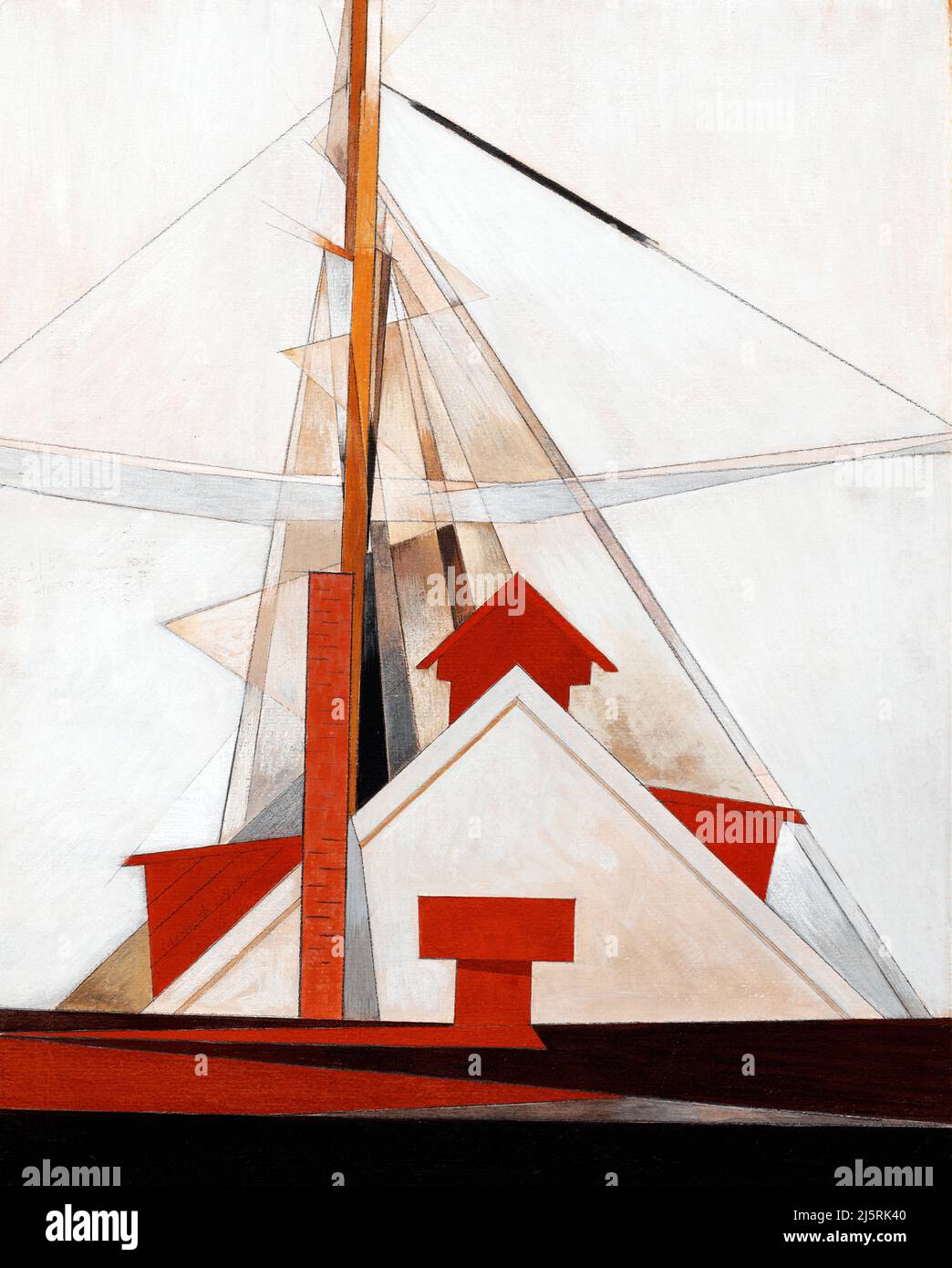Art by Charles Demuth - Masts (1919) Precisionism style.

Image details
Contributor:
Bill Waterson / Alamy Stock PhotoImage ID:
2J5RK40File size:
115.2 MB (3.6 MB Compressed download)Releases:
Model - no | Property - noDo I need a release?Dimensions:
5688 x 7080 px | 48.2 x 59.9 cm | 19 x 23.6 inches | 300dpiDate taken:
6 April 2022Location:
USAMore information:
This image is a public domain image, which means either that copyright has expired in the image or the copyright holder has waived their copyright. Alamy charges you a fee for access to the high resolution copy of the image.
This image could have imperfections as it’s either historical or reportage.
Charles Henry Buckius Demuth (November 8, 1883 – October 23, 1935) was an American painter who specialized in watercolors and turned to oils late in his career, developing a style of painting known as Precisionism. "Search the history of American art, " wrote Ken Johnson in The New York Times, "and you will discover few watercolors more beautiful than those of Charles Demuth. Combining exacting botanical observation and loosely Cubist abstraction, his watercolors of flowers, fruit and vegetables have a magical liveliness and an almost shocking sensuousness." Demuth was a lifelong resident of Lancaster, Pennsylvania. The home he shared with his mother is now the Demuth Museum, which showcases his work. He graduated from Franklin & Marshall Academy before studying at Drexel University and at Philadelphia's Pennsylvania Academy of Fine Arts. While he was a student at PAFA, he participated in a show at the Academy, and also met William Carlos Williams at his boarding house. The two were fast friends and remained close for the rest of their lives. He later studied at Académie Colarossi and Académie Julian in Paris, where he became a part of the avant garde art scene. The Parisian artistic community was accepting of Demuth's homosexuality. After his return to America, Demuth retained aspects of Cubism in many of his works.